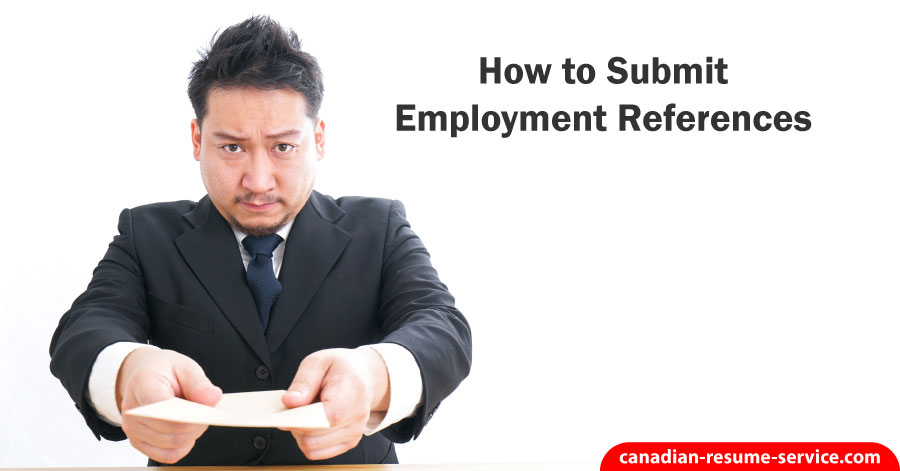A lot of job seekers struggle with how to submit employment references.
Submitting employment references when requested by the hiring authority is the correct procedure. Do not add references to a resume.
References belong on a separate piece of paper that matches your resume. Use the same format and letterhead. Quite often, you will not be asked for them until you are in the job interview.
Why You Need References
Having solid references is critical in helping you to secure your ideal job. There isn’t a much more effective marketing resource for yourself than your references. These people can confirm your relevant skills and accomplishments and attest to how they’ll be a perfect match for the position you are applying for.
A strong resume and cover letter are your best chance of initially attracting an employer’s interest. However, references are so powerful because they provide positive information from someone other than yourself. This is invaluable to a potential employer. With such a powerful tool in your back pocket, it’s important to get the timing right.
When To Hand Out Reference Information
Oftentimes, an employer will ask you to supply your references before offering you a job. They will want to contact your references to ensure the information you’ve supplied them with is correct. They also want to find out what type of worker you are and what your past career accomplishments entailed.
Check-in with your references so they are ready to sing your praises. This is a critical part of the employment process.
Since the main reason an employer should contact your references is to verify the information you’ve provided, they are to be used after an interview. This means that you should not be handing out your references until asked, usually following an interview. Your references are your secret weapon; protect them until the moment they’re needed.
Provide Contact Information Sparingly
If you give out your references too freely or place them on your resume, you may run into trouble with the people you’ve asked to speak on your behalf. If your references are contacted too often, it could become bothersome. Avoid this!
References contain private contact information, so protect it. Only reveal it at an interview for an employer you’re serious about.
Another advantage of holding onto your references until later is that you will choose them accordingly. You may have multiple references from various professional experiences where some are more fitting to one position than others. This way, you’ll be sure to provide an employer with the most appropriate references.
Lastly, if you run into a job ad that asks for your references with your application, state that you will be more than willing to provide your references at an interview. Or, you can provide the names of your references but withhold the contact information, stating that you will provide this information at an interview.
One of Your Most Powerful Tools
References contain confidential contact information and are not something you should hand out to anybody. They are also some of your most powerful marketing tools, use them with caution and release them at the appropriate moment—at an interview.
A reference page should be professionally typed as part of your application package. It needs to look as professional as the rest of your career documents.

